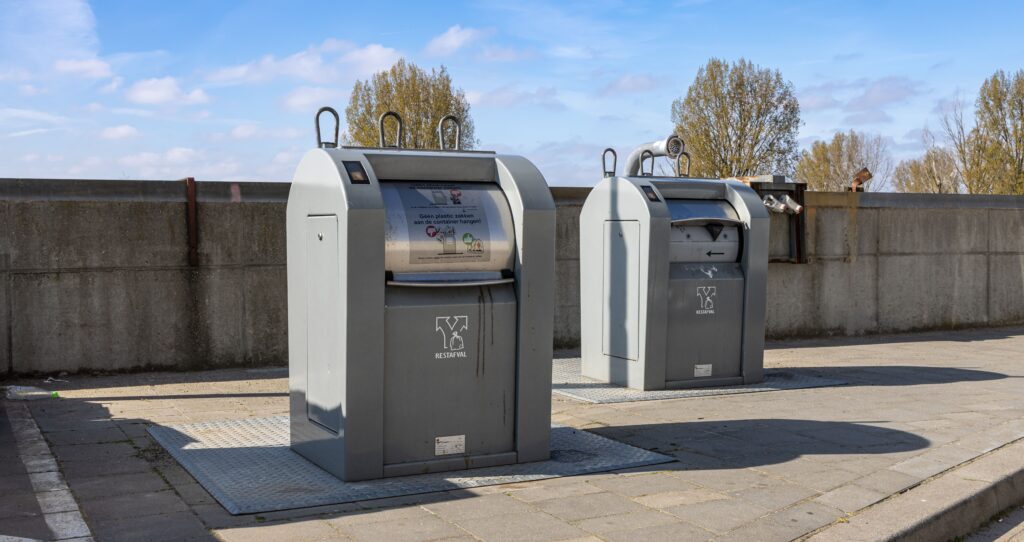Introduction
In the evolving landscape of waste management, solar-powered waste bins have emerged as a modern solution offering numerous benefits compared to traditional waste management systems. This comparative analysis explores the key differences between solar-powered waste bins and conventional waste management solutions, focusing on aspects such as efficiency, environmental impact, cost-effectiveness, and integration with other technologies. Additionally, we’ll examine how technologies like textile balers play a role in enhancing overall waste management strategies.
Overview of Waste Management Solutions
Traditional Waste Management Solutions
Traditional waste management solutions typically involve standard waste bins that are manually emptied by waste collection services. These bins are usually placed at fixed locations and require regular visits from collection trucks to empty them. The collection frequency often depends on factors like the volume of waste generated and local regulations.
Solar-Powered Waste Bins
Solar-powered waste bins represent a modern advancement in waste management. These bins are equipped with solar panels that power various features, including sensors, compactors, and communication systems. The integration of renewable energy technology and smart features aims to improve waste collection efficiency and reduce environmental impact.
Comparative Analysis
1. Efficiency
Traditional Waste Management Solutions:
- Collection Frequency: Standard waste bins often require fixed collection schedules, leading to inefficient collection practices. Bins may be emptied more frequently than necessary or left unattended when they are full.
- Operational Costs: Frequent collection trips increase fuel consumption and labor costs. The inefficiency of this system can strain municipal budgets and resources.
Solar-Powered Waste Bins:
- Real-Time Monitoring: Equipped with sensors, solar-powered waste bins can monitor fill levels in real-time and send alerts to waste management teams when they are nearing capacity. This data-driven approach allows for optimized collection schedules.
- Compaction Technology: Many solar-powered bins feature compactors that reduce the volume of waste. This means fewer collection trips are needed, leading to reduced operational costs and a lower carbon footprint.
2. Environmental Impact
Traditional Waste Management Solutions:
- Carbon Emissions: Regular collection trips by waste trucks contribute to carbon emissions and environmental pollution. The lack of efficiency in waste collection exacerbates these issues.
- Resource Consumption: Traditional bins rely on conventional energy sources for waste collection processes, which may not align with sustainability goals.
Solar-Powered Waste Bins:
- Renewable Energy: Solar-powered waste bins use solar panels to generate energy, reducing reliance on fossil fuels and decreasing the carbon footprint of waste management operations.
- Waste Reduction: The compaction feature in many solar-powered bins allows for more waste to be stored in each bin, which can lead to fewer collection trips and lower emissions associated with waste transportation.
3. Cost-Effectiveness
Traditional Waste Management Solutions:
- Initial Costs: Traditional waste bins are generally less expensive to purchase and install compared to solar-powered bins. However, the ongoing operational costs can be high due to frequent collection needs and fuel consumption.
- Long-Term Costs: Over time, the cumulative cost of fuel, labor, and maintenance can outweigh the initial savings from using traditional bins.
Solar-Powered Waste Bins:
- Initial Investment: Solar-powered waste bins have a higher upfront cost due to the integration of solar panels, sensors, and compactors. However, this investment can lead to significant savings in the long term.
- Operational Savings: Reduced collection frequency, lower fuel consumption, and decreased labor costs contribute to long-term savings. The improved efficiency and reduced environmental impact can also lead to additional financial incentives, such as reduced carbon offset costs.
4. Integration with Other Technologies
Traditional Waste Management Solutions:
- Limited Technology Integration: Traditional bins have limited technological features and often do not integrate with modern waste management systems. This can result in less efficient operations and limited data availability.
Solar-Powered Waste Bins:
- Smart Integration: Solar-powered bins are often equipped with advanced technology, including sensors, GPS, and communication systems. This allows for seamless integration with smart waste management systems and data analytics platforms.
- Textile Balers: The efficiency of waste management can be further enhanced by integrating solar-powered bins with technologies like textile balers. Textile balers compact and bundle waste textiles, making it easier to handle and transport waste. This synergy between solar-powered bins and textile balers can streamline waste processing and improve overall system efficiency.
5. Public Perception and Engagement
Traditional Waste Management Solutions:
- Public Awareness: Traditional bins may not engage the public as effectively in environmental initiatives. The lack of visible technology can lead to lower awareness and participation in waste reduction efforts.
Solar-Powered Waste Bins:
- Educational Value: Solar-powered waste bins with interactive features, such as digital displays or information panels, can educate the public about recycling practices and sustainability. This can increase public engagement and encourage more responsible waste disposal habits.
Challenges and Considerations
Traditional Waste Management Solutions
- Increased Frequency of Collection: Traditional systems may lead to inefficiencies due to the need for frequent collection, resulting in higher operational costs and environmental impact.
- Infrastructure Limitations: Limited integration with modern technologies can restrict the effectiveness of traditional waste management systems.
Solar-Powered Waste Bins
- Initial Costs: The upfront investment for solar-powered waste bins can be substantial, which may be a barrier for some municipalities.
- Maintenance Requirements: Solar panels and advanced features may require regular maintenance to ensure optimal performance.
Case Studies and Success Stories
Solar-Powered Bins in Major Cities
Several cities worldwide have successfully implemented solar-powered waste bins, experiencing significant improvements in waste management efficiency and environmental impact. For example, cities like New York and San Francisco have reported reductions in collection frequency and operational costs after adopting solar-powered bins.
Integration with Textile Balers
In some urban settings, the combination of solar-powered waste bins and textile balers has proven effective in managing textile waste. By using solar-powered bins to optimize collection and textile balers to process and compact textile waste, municipalities have achieved better resource management and reduced waste transportation needs.
Conclusion
The comparative analysis of solar powered waste bins versus traditional waste management solutions highlights the advantages of modern technology in improving efficiency, reducing environmental impact, and optimizing operational costs. Solar-powered waste bins offer a forward-thinking approach to waste management, integrating renewable energy and smart features to enhance urban environments. When combined with technologies like textile balers, they further contribute to a more efficient and sustainable waste management system.
While traditional waste management solutions have served their purpose, the evolution of waste management technologies, including solar-powered bins and advanced waste processing equipment, presents an opportunity for municipalities to embrace more sustainable and cost-effective practices. As cities continue to grow and environmental concerns become more pressing, adopting innovative solutions like solar-powered waste bins will be crucial in achieving smarter and greener waste management.



